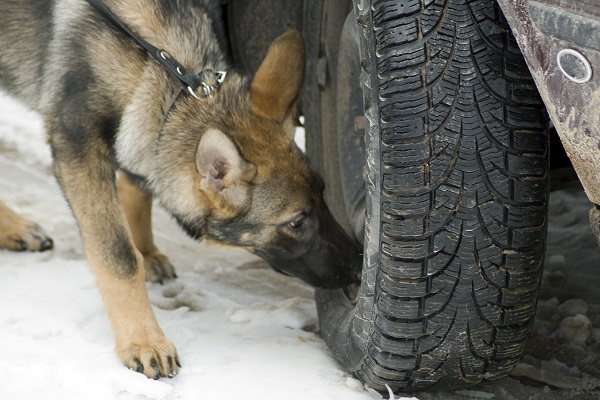Legality of the Car Search in Oklahoma

During DUI arrests in Oklahoma, police may be able to legally search the driver’s automobile. But wait – you may say – doesn’t the Fourth Amendment protect people against unreasonable searches and seizures of their property? Yes, and so does Article 2, Section 30 of the Oklahoma Constitution. However, several exceptions apply during traffic stops that could allow police to search your car.
Police usually must have a search warrant to conduct an automobile search. If there was no warrant, the courts assume that the search was unreasonable, and the government must demonstrate that the search was reasonable. Otherwise, evidence from the search may not be admissible. However, there are a number of exceptions to the warrant requirement, such as consent; the search incident to arrest, the automobile exception, plain view, stop and frisk, and more. Several exceptions are discussed briefly below.
Consent
With voluntary and intelligent consent from a driver, the police can search his car without a warrant. A passenger may also consent to a search.
Search Incident to Arrest
As long as an arrest is lawful, a search of a person being arrested for weapons or evidence is lawful. Chimel v. California, 395 U.S. 752 (1969). However, if a person was arrested without probable cause, then any incriminating evidence found during the search cannot be used in court. Further, police may search the passenger compartment of the automobile an arrestee who was pulled over was driving, if police reasonably believe that evidence of the crime for which the driver was arrested can be found in the vehicle, or if police believe the arrestee could have accessed his car at the time of the search (e.g. to reach inside for a weapon). Arizona v. Gant, 556 U.S. 332 (2009); United States v. Robinson, 414 U.S. 218 (1973).
Automobile Exception
To initiate a traffic stop, police must have reasonable suspicion that a crime has been committed. Reasonable suspicion can arise from a minor traffic incident such as failure to signal at a right turn. During the stop, if the officer develops probable cause (more than a reasonable suspicion) to believe that a crime has been committed before they search the suspect, the officer can search the driver’s car – including the trunk – without a warrant. The probable cause can arise before or after the car is stopped but must arise before anyone or anything is searched. One example of development of probable cause is smelling marijuana in the car. Lozoya v. State, 1996 OK CR 55, 932 P.2d 22. Further, the police can open any package or container in the car which could contain the item they had probable cause to search for.
Plain View
This exception commonly arises during traffic stops. If police can see instrumentalities of a crime or contraband in plain view in the car and have probable cause to believe the items are evidence of a crime, they can seize the items. Arizona v. Hicks, 480 U.S. 321 (1987). One example is open beer bottles in the cup holders. Another is a pipe or other drug paraphernalia lying on the seat.
Was your car searched after a DUI stop in Oklahoma? Clint Patterson, Esq., of Patterson Law Firm, a former Tulsa prosecutor now using his trial experience and expert-level knowledge of DUI science to defend drivers, has the experience and the insight to evaluate the strengths and weaknesses of your case. To schedule a case evaluation, visit Patterson Law Firm online or call Clint’s office at (918) 550-9175.

